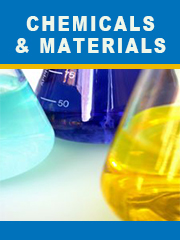Report overview
Animal Feed Supplements are enzyme supplements, phosphate, calcium and trace mineral mixtures that can be given to grazing animals during the dry or rainy season. These animal feed supplements can be mixed with fodder and have an extra shelf life.
Animal nutrition focuses on the dietary needs of animals, primarily those in agriculture and food production, but also in zoos, aquariums, and wildlife management. Feed additives are products used in animal nutrition for purposes of improving the quality of feed and the quality of food from animal origin, or to improve the animals? performance and health, e.g. providing enhanced digestibility of the feed materials. Feed additives may not be put on the market unless authorization has been given following a scientific evaluation demonstrating that the additive has no harmful effects, on human and animal health and on the environment.
This report aims to provide a comprehensive presentation of the global market for Ruminant Animal Nutrition, with both quantitative and qualitative analysis, to help readers develop business/growth strategies, assess the market competitive situation, analyze their position in the current marketplace, and make informed business decisions regarding Ruminant Animal Nutrition. This report contains market size and forecasts of Ruminant Animal Nutrition in global, including the following market information:
Global Ruminant Animal Nutrition Market Revenue, 2018-2023, 2024-2029, ($ millions)
Global Ruminant Animal Nutrition Market Sales, 2018-2023, 2024-2029, (K MT)
Global top five Ruminant Animal Nutrition companies in 2022 (%)
The global Ruminant Animal Nutrition market was valued at US$ 17020 million in 2022 and is projected to reach US$ 19180 million by 2029, at a CAGR of 1.7% during the forecast period. The influence of COVID-19 and the Russia-Ukraine War were considered while estimating market sizes.
The major players in global Animal Nutrition market include Evonik, Adisseo, CJ Group, etc. The top 3 players occupy about 10% shares of the global market. Asia Pacific and Europe are main markets, they occupy about 60% of the global market. Minerals is the main type, with a share about 55%. Poultry Feeds is the main application, which holds a share about 46%.
We surveyed the Ruminant Animal Nutrition manufacturers, suppliers, distributors and industry experts on this industry, involving the sales, revenue, demand, price change, product type, recent development and plan, industry trends, drivers, challenges, obstacles, and potential risks.
Total Market by Segment:
Global Ruminant Animal Nutrition Market, by Type, 2018-2023, 2024-2029 ($ Millions) & (K MT)
Global Ruminant Animal Nutrition Market Segment Percentages, by Type, 2022 (%)
Minerals
Amino Acids
Vitamins
Enzymes
Others
Global Ruminant Animal Nutrition Market, by Application, 2018-2023, 2024-2029 ($ Millions) & (K MT)
Global Ruminant Animal Nutrition Market Segment Percentages, by Application, 2022 (%)
Cattle
Sheep
Other
Global Ruminant Animal Nutrition Market, By Region and Country, 2018-2023, 2024-2029 ($ Millions) & (K MT)
Global Ruminant Animal Nutrition Market Segment Percentages, By Region and Country, 2022 (%)
North America
US
Canada
Mexico
Europe
Germany
France
U.K.
Italy
Russia
Nordic Countries
Benelux
Rest of Europe
Asia
China
Japan
South Korea
Southeast Asia
India
Rest of Asia
South America
Brazil
Argentina
Rest of South America
Middle East & Africa
Turkey
Israel
Saudi Arabia
UAE
Rest of Middle East & Africa
Competitor Analysis
The report also provides analysis of leading market participants including:
Key companies Ruminant Animal Nutrition revenues in global market, 2018-2023 (Estimated), ($ millions)
Key companies Ruminant Animal Nutrition revenues share in global market, 2022 (%)
Key companies Ruminant Animal Nutrition sales in global market, 2018-2023 (Estimated), (K MT)
Key companies Ruminant Animal Nutrition sales share in global market, 2022 (%)
Further, the report presents profiles of competitors in the market, key players include:
Evonik
Adisseo
Novus International
CJ Group
DSM
Meihua Group
Alltech
BASF
Kemin Industries
Sumitomo Chemical
Global Bio-Chem
ADM
Biomin
Novozymes
Lonza
DuPont
Nutreco
Outline of Major Chapters:
Chapter 1: Introduces the definition of Ruminant Animal Nutrition, market overview.
Chapter 2: Global Ruminant Animal Nutrition market size in revenue and volume.
Chapter 3: Detailed analysis of Ruminant Animal Nutrition manufacturers competitive landscape, price, sales and revenue market share, latest development plan, merger, and acquisition information, etc.
Chapter 4: Provides the analysis of various market segments by type, covering the market size and development potential of each market segment, to help readers find the blue ocean market in different market segments.
Chapter 5: Provides the analysis of various market segments by application, covering the market size and development potential of each market segment, to help readers find the blue ocean market in different downstream markets.
Chapter 6: Sales of Ruminant Animal Nutrition in regional level and country level. It provides a quantitative analysis of the market size and development potential of each region and its main countries and introduces the market development, future development prospects, market space of each country in the world.
Chapter 7: Provides profiles of key players, introducing the basic situation of the main companies in the market in detail, including product sales, revenue, price, gross margin, product introduction, recent development, etc.
Chapter 8: Global Ruminant Animal Nutrition capacity by region & country.
Chapter 9: Introduces the market dynamics, latest developments of the market, the driving factors and restrictive factors of the market, the challenges and risks faced by manufacturers in the industry, and the analysis of relevant policies in the industry.
Chapter 10: Analysis of industrial chain, including the upstream and downstream of the industry.
Chapter 11: The main points and conclusions of the report.
